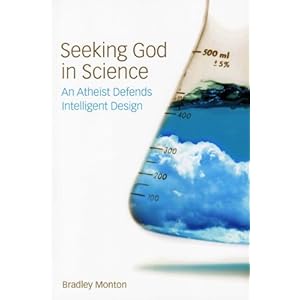 One of philosopher Robert Pennock’s arguments for methodological naturalism (which rules out evidence for design in nature in principle, because it cannot be considered) is that “we cannot control the supernatural:”
One of philosopher Robert Pennock’s arguments for methodological naturalism (which rules out evidence for design in nature in principle, because it cannot be considered) is that “we cannot control the supernatural:”
Experimentation requires observation and control of the variables. We confirm causal laws by performing controlled experiments in whichthe hypothesized independent variable is made to vary while all the other factors are held constant so that we can observe the effect on the dependent variable. But we have no control over supernatural entities or forces; hence, these cannot be scientifically studied.
Monton, author of Seeking God in Science: An Atheist Defends Intelligent Design (Broadview Press, 2009), replies,
For the moment let’s grant experimentation reqires observation and control of the variables. A problem arises when Pennock attempts to infer that, because we have no control over supernatural entities or forces, these supernatural entities or forces cannot be scientifically studied. What Pennock is ignoring is the distinction (standardly made in philosophy of science) between experimental science and historical science.
Consider paleontology: what scientists who are engaging in this practice are doing is making observations and drawing inferences based on those observations. We can’t do a controlled experiment to determine whether the dinosaurs died out as the result of an asteroid impact – we can’t vary an independent variable while holding all other fators constant. Nevertheless, we can make lots of observations in the world (of dinosaur bones, geological strata, asteroid craters, and so on) and we can make scientific inferences on the basis of these observations. Also, consider cosmology: we can’t do a controlled experiment to find out whether the universe started with a big bang, but we can make astronomical observations and make scientific inferences on their basis. I conclude that we can scientifically study aspects of reality that we can’t experimentally control. Thus, it doesn’t follow from the claim that we have no control over supernatural entities that we can’t study them. (p. 67)
(Readers may recall that Pennock was the philosopher who went after emeritus philosophy of science prof Larry Laudan in the controversial issue of Synthese. David Tyler has a look at Pennock’s style of argument here.)
Meanwhile, note: Monton will be guest authoring a post here on whether the universe has infinite spatial extent and how that might affect intelligent design theory. Physicist Rob Sheldon will reply. In addition to reading Monton’s book, he is delving into cosmology and transfinite numbers. Details TBA.